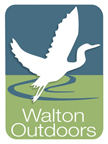
On Feb. 15, 2017 Vernon Bishop, the founder of South Walton Mosquito District (District) shared his memories of area history and the District.
At 93, Bishop recalled the early days of growing up in Santa Rosa, in an area near Santa Rosa Bayou (Hogtown Bayou). Growing up wasn’t easy as there was no electricity, or even a bridge across the Bay until he reached his teenage years. The only transportation was by boat, with staples arriving from Pensacola.
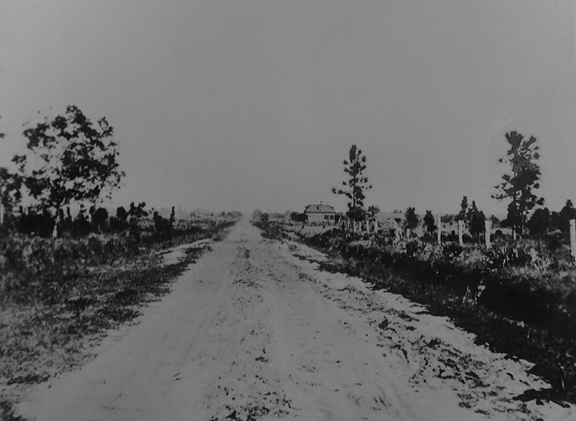
Farming in Santa Rosa was a daunting task, as there were mosquitoes along with dog flies in abundance. Cattle farming in particular was very challenging.
“I remember the cattle would stampede into the Gulf to escape the dog flies. They submerged themselves and all you saw were their noses sticking out of the water,” Bishop said.
In the 1940s electricity finally arrived on the south side of the Choctawhatchee Bay. Bishop, grown up, married Loyce Brown, and shortly thereafter served in the Army during World War II. After the war ended, Bishop opened a grocery store, and the couple parented two sons, Terry and Michael.
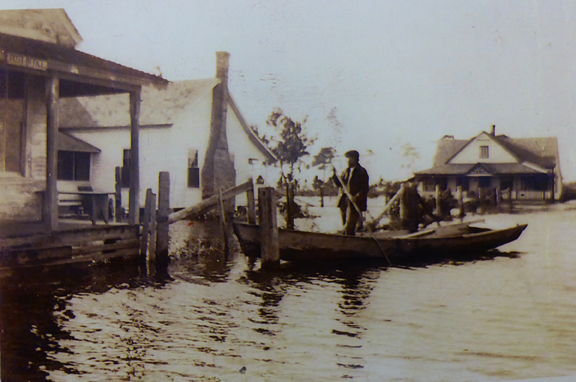
“There was a post office and a general store in Santa Rosa, however, after a heavy rain or major storm, you would need a rowboat to get to them. There were no phones, I had to drive to Freeport and use a crank up phone to order supplies or talk to anyone. The first phone came in 1950, a pay phone at a service station in Frangista Beach, everyone made their phone calls from there. Delivery of supplies from Panama City or Pensacola by freight truck that came through once a week, so supplies took at least a week to get here,” said Bishop.
In 1952 Bishop opened a service station and got his own phone. The business provided the means to raise their family, and he continued operating the service station until 1969. The first hotel on the beach was also built in 1952, marking the start of the tourist industry in South Walton.
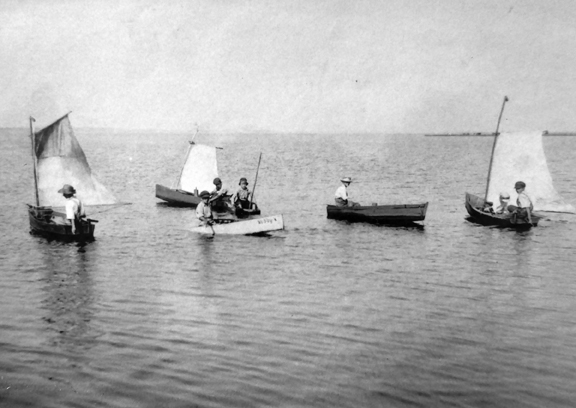
In the early 1960s, with roads being paved hotels being built, and tourism starting to expand, the Walton County Chamber of Commerce and the Lions Club could see the potential for South Walton. There was one major problem … insects. Noseeums, deer flies, mosquitos, and dog flies plagued the area.
South Walton, north of the sand ridge that runs parallel to the beach was basically a swamp, insect heaven all the way to the Choctawhatchee Bay.
“If you were outside working during the day, you needed to be in smoke to keep the insects off of you. If you wanted to go outside and work in the garden, you had to wear longs sleeve shirts, pants, socks, gloves, and an insect net over your head,” Bishop said.
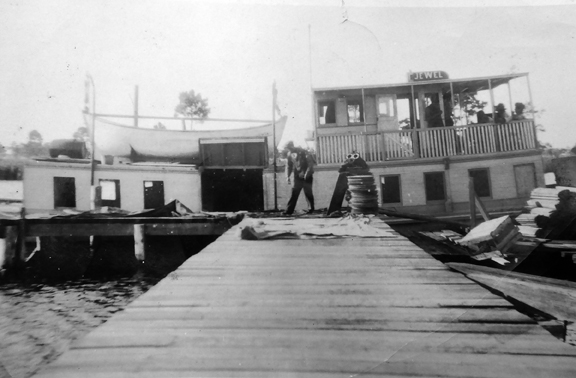
Something needed to be done. Bishop and his fellow Lions understood what needed to be done. According to Chapter 388 of the Florida Statues, better know as The Mosquito Control Law, counties or parts of counties could become independent, tax supported mosquito control districts by petition. The petition required 15% or more of the residing property owner signatures in the proposed district. The Lions Club members got the needed signatures and presented the petition to the Board of County Commissioners who approved. The Commission members were Louis Genevieve Maxon, Edwin R. Walline, and Vernon Bishop. The South Walton Mosquito Control District was officially established on May 26, 1964.
The District’s initial budget was $23,000; $11,500 from local millage tax, and $11,5000 from State matching funds. Even by assessing property owners at the maximum level of millage allowed it was difficult getting the program off the ground.
The District’s responsibility included the control of other pestiferous insects, not just mosquitoes. Fly control was a problem as tourists and businesses would dump their garbage throughout the woods. The result was hordes of houseflies. To solve the problem the District got permission from St. Joe Paper Company to use their land, free of charge, to operate landfills. The dragline dug the trenches, the trash was dumped, and the bulldozer covered it with dirt. Initially there were four landfills; Eastern Lake area, Blue Mountain Road, Mack Bayou Road, and East Point Washington Road. In 1974 the landfills were consolidated into one center location, Blue Mountain. It was open 7 days a week and provided a garbage disposal for South Walton residents free of charge. In the early 1980s the County took over the landfill and operated it as a non-hazardous waste landfill until its closure in the early 90s.
In 1969 Bishop stepped down from the County Commission and became the District’s director. Realizing the mosquito habitat was extensive and knowing source reduction was the only permanent way of control mosquitoes in South Walton, Bishop went to work. Working hand in hand with the Florida Dept. of Health and Rehabilitative Services (HRS), Office of Entomology, the Florida Dept. of Transportation (DOT), and the area property owners, the District began what would not only reduce mosquito populations on a permanent basis, but also provide what would become the flood control system for South Walton.
Today there are 47 ditches maintained by the District. These ditches have lowered the water table allowing water to percolate instead of stand on the surface, thus eliminating mosquito habitat and making land developable. Also, because their outfall is to the bay, stormwater is quickly conveyed, avoiding the flooding of property that would occur without them.
Vernon Bishop retired from the District in 1985.
Note: Vernon Bishop passed away on May 13, 2019. You can learn more about his legacy here.
